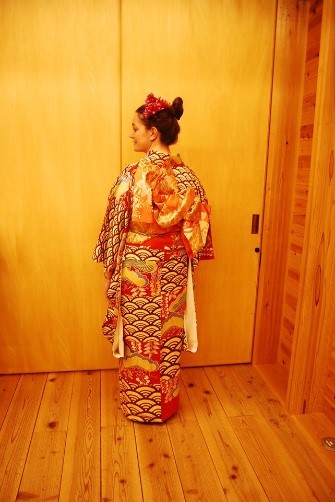Janine provides advice from challenging yourself on the monkey bars and making flash card booklets, to what students can learn from Renkei, which means collaboration in Japanese, in terms of knowing when to be self-reliant and when to ask for support.
What did it feel like to be coming back as a student after life as a practising solicitor-advocate?
In some ways, returning to academia as a student felt like a luxury. No 6-minute time-keeping, no billing targets, no clients! Life in practice is full-on. The pressures are acute and the cadence of a heavy case-load generates periods of fast-approaching, often simultaneous, deadlines. Over time, what I have come to realise is that academia is equally intense, with pressures that are chronic. You have to keep to time, there are significant non-pecuniary targets and you are your own worst client.
Did you feel you were more able to cope with the pressure of exams coming back after time away from studying?
Absolutely. I was able to plan my time much more effectively, working a 9 to 5 throughout the year then extending my day over the revision period. But managing the pressure of exams is about more than just managing your time. In practice, but also just by virtue of growing up a bit, I learned the importance of keeping myself on an even keel. Mostly I did this by exercising regularly and building into my revision timetable spaces for swimming and jogging. And spending time with family reminded me of other important things in life.
What skills do you think you developed in your role as a solicitor-advocate that helped you better manage your revision?
Being a solicitor-advocate requires you to take instructions from clients, build-up a robust case and then deliver a convincing argument in a judicial setting. Yet the power of a strong argument is equally important for answering exam questions. Being in practice helped me understand that the exam is assessing the ability to use legal material to advance a broader argument that directly answers a question. Once I realised this, I focused on learning legal facts in terms of how they contribute to the development of an argument rather than for the sake of being regurgitated at a desk in the Great Hall. I used previous exam papers to practice writing complete answers within specific time-frames.
What tips would you give a student feeling overwhelmed by the amount of information they are taking on at this time?
It can be quite frightening feeling overwhelmed by too much information. I remember times of feeling dislocated from reality and it scared me. My tip would be to take a break and go to the top of Brandon Hill and look out over the harbour to Dundry Hill beyond and remind yourself of the beauty in the world. Then run to the bottom of the park, do the monkey bars in the playground and then sprint back up; get your heart-rate as high as possible – to 190 bpm at least! Once recovered, if you can bear to, head back to Wills.
There are a number of ways of managing large quantities of information. Assuming that you have made notes throughout the year and supplemented them in places at the start of the revision period, you then need to go through a process of distillation. People do this differently. I used to go through two further stages: condense my notes into three orf four pages per topic; and then finally onto flash cards. I got a strange pleasure out of making them into booklets bound by treasury tags. They were satisfying little objects. If there was any time left before the exam, I would read them.
Did preparing for exams help in any way towards future activities. Did it help you in your PhD for instance? In other words, are skills developed now, skills for life?
Preparing for exams is about putting to memory detailed, legal material so that a broader argument can be developed which responds directly to a question. In many ways, this skill is at the heart of developing a good doctoral thesis. Managing the micro and macro levels of analysis can be tricky but something you learn in a variety of different contexts; legal practice, exam revision and doctoral research. Clearly, managing your time and the sheer volume of material during revision period sets you up well for managing the demands of employment generally.
You have had an amazing career progression since returning to Bristol as a student in 2008. How important was it for you to make the time for personal development?
Spending time on personal development takes me away from the immediate demands of researching and teaching, but once away, there is space to reflect on where I am, how I’m doing and where I want to be. I find it an important element in managing a demanding workload.
You recently referred to a RENKEI course as one of the "most remarkable" development activities you undertook at Bristol. What is RENKEI?
I loved RENKEI! It was a four-week researcher development school fostering collaboration across cultures on the theme of sustainability and resilience. Funded by eleven universities in the UK and Japan, and supported by the British Council, 22 postgraduate research students and early career researchers from UK and Japan spent two weeks in Bristol in July 2013 and another two weeks in Kyoto in December 2013. I find it quite difficult to articulate in a short paragraph just how remarkable the initiative was. Aside from meeting some fantastic students and staff, we were exposed to a huge variety academics and professionals involved in the field of sustainability and resilience in different ways, became aware of the broader context of academic research, and had first-hand experience of collaborating across cultures as we worked in teams on real-life problems. And we got to dress up.
Did you learn anything from that experience that you could pass on to student in terms of preparing themselves mentally for their exams?
The RENKEI experience was mentally challenging at times, precipitated by the jet-lag, cultural reorientation and long working days. I learned the importance of knowing when to be self-reliant and when to share a problem; both were necessary at different times. My advice for preparing mentally for your exams is to reflect on your progress without panicking, know your strengths and weaknesses and be prepared to talk things through with a trusted person when you feel it’s necessary.
Good luck!

